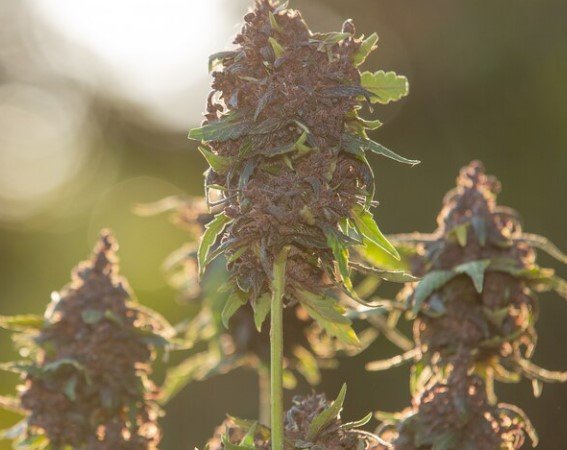Democratic Reps. Dina Titus of Nevada and Ilhan Omar of Minnesota are stepping into the spotlight as the new co-chairs of the Congressional Cannabis Caucus. This leadership change signals a potential shift in marijuana reform advocacy as the two lawmakers take the reins from retiring founders Earl Blumenauer of Oregon and Barbara Lee of California.
A Changing of the Guard in Cannabis Advocacy
The Congressional Cannabis Caucus, founded in 2016 and officially launched a year later, has been a cornerstone of marijuana reform efforts in Congress. Blumenauer, a vocal advocate for legalization, played a pivotal role in shaping the group’s trajectory. Now, the torch has been passed to Titus and Omar, two lawmakers representing states with regulated cannabis markets.
Titus, a seasoned political science professor turned legislator, has served Nevada’s Las Vegas district since 2009. Her track record includes championing medical marijuana access for veterans and supporting cannabis banking reform. Meanwhile, Omar, representing Minneapolis and its suburbs, has made social equity a focal point of her cannabis policy, co-sponsoring the MORE Act to federally decriminalize marijuana and allocate tax revenue to social justice initiatives.
Their leadership comes at a critical juncture. While both hail from states embracing adult-use cannabis sales, they face a steep climb in advancing reform in a Republican-controlled Congress under House Speaker Mike Johnson, a noted skeptic of marijuana legalization.

State Policies Reflect National Challenges
Nevada and Minnesota’s cannabis journeys highlight the broader complexities of U.S. marijuana policy. Nevada’s regulated adult-use market has been operational since January 2017, making it one of the earliest adopters of legalization. In contrast, Minnesota’s adult-use sales, signed into law just last year, aren’t expected to begin until 2026, underscoring the lengthy implementation process many states face.
For Titus, representing Las Vegas—a hub for cannabis tourism and innovation—provides a unique vantage point. Her experience in navigating issues like cannabis banking reform positions her as a key advocate for federal legislation that could streamline the industry’s operations and boost its legitimacy.
Omar, on the other hand, brings a focus on equity. Her district, home to diverse communities in Minneapolis, reflects a broader push to ensure cannabis reform addresses the social injustices of prohibition. With the MORE Act proposing federal decriminalization and revenue redistribution, Omar’s leadership may amplify these equity-driven narratives.
Challenges Ahead in a Divided Congress
The Congressional Cannabis Caucus now operates in a political environment that’s less receptive to reform than it was under Democratic leadership. Speaker Johnson’s reluctance to prioritize marijuana-related bills, including the SAFER Banking Act, underscores the hurdles ahead. This act, aimed at providing financial services to cannabis businesses, has broad bipartisan support but has yet to gain traction in the Republican-led House.
Moreover, the looming presidency of Donald Trump adds uncertainty. While Trump has expressed support for certain legalization measures—such as Florida’s failed adult-use initiative—his broader stance on federal cannabis reform remains unclear. The rescheduling of marijuana under federal law could become a contentious issue in the coming years.
The Stakes for Marijuana Reform
Titus and Omar’s leadership arrives at a time when the U.S. cannabis industry faces significant challenges, including:
- Banking Restrictions: Cannabis businesses continue to struggle with accessing financial services, making banking reform a top priority.
- Social Equity: Efforts to address racial disparities in cannabis arrests and convictions remain uneven across states.
- Federal Prohibition: Despite state-level momentum, marijuana remains illegal federally, complicating interstate commerce and regulatory consistency.
Their success will depend on rallying bipartisan support for reform measures that address these pressing issues.
| Key Issues | Current Status |
|---|---|
| Cannabis Banking Reform | SAFER Banking Act stalled in House. |
| Federal Decriminalization | MORE Act co-sponsored by Omar seeks to address this but faces political roadblocks. |
| Social Equity Initiatives | Efforts vary widely, with some states lagging in implementing equity programs. |
What’s Next for the Cannabis Caucus?
As the caucus embarks on this new chapter, Titus and Omar will need to navigate both internal and external pressures. The caucus must maintain its role as a platform for bipartisan collaboration while advocating for policies that reflect the evolving cannabis landscape.
Will they succeed in pushing forward meaningful reforms? That remains to be seen. For now, the spotlight is on these two lawmakers as they work to ensure cannabis policy keeps pace with public opinion and state-level progress.
